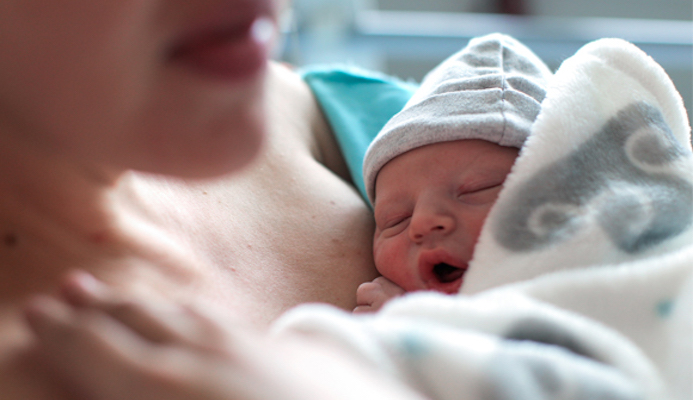 Nine months sounds like a long time, but it can be a whirlwind for pregnant women preparing for the day when their baby boy or girl arrives. In the days that follow, new mothers will learn how to change diapers and function on minimal sleep, but they might not anticipate having difficulty breastfeeding.
Nine months sounds like a long time, but it can be a whirlwind for pregnant women preparing for the day when their baby boy or girl arrives. In the days that follow, new mothers will learn how to change diapers and function on minimal sleep, but they might not anticipate having difficulty breastfeeding.
“A lot of moms think it will be just very natural for them, that breasts were made for breastfeeding and they do think that babies will just know what to do,” said Kathleen Hugo, RN, IBCLC, Women’s Resource Community coordinator for Baptist Health.
The reality is, Hugo said, many women will struggle.
“It’s a new dance you’re learning, your baby is your new dance partner, and you’ve got to figure out your moves together,” Hugo said.
The American Academy of Pediatrics recommends infants be exclusively breastfed for their first six months, but a woman’s inability or difficulty doing so can lead to disappointment or even contribute to postpartum depression.
“They feel defeated,” said Johannah Seifert, RN, IBCLC. “They feel like they’re doing something wrong or they’re not providing what they need for their baby. So it really takes a toll on them.”
“When a mother is six to eight weeks postpartum, her OB will assess her emotional state and even administer the Edinburgh Postnatal Depression Scale survey [a postpartum depression screening tool],” said Hugo. “In about 40 percent of the mothers who test positively, a common denominator is that they have been struggling with breastfeeding,” Hugo said.
Both Hugo and Seifert identified two key strategies for helping women succeed at breastfeeding.
First, women need to manage expectations and understand the process may not come naturally. Hugo said women should maximize skin-to-skin contact with their baby and spend time learning cues that the baby wants to feed, and understand how to be successful.
Second, women should begin preparation before the baby is born. That includes speaking with their OB or their baby’s pediatrician and attending breastfeeding classes.
“A lot of people have never seen breastfeeding, don’t know what it looks like, and then try to do it,” Seifert said. “Our classes, which are available to all women in the community, help them feel more comfortable with breastfeeding.”
Overall, Hugo said women should remember that in order to take care of their babies, they have to take care of themselves.
A support system is vital for women who are having difficulty breastfeeding. Baptist Health offers a free breastfeeding support group, as well as childbirth education classes, where new mothers can come, share, encourage and learn from one another. Moms-to-be don’t have to be a Baptist Health patient to attend our classes; some classes are offered for a minimal cost. Call 904.202.2229 for more information.
















